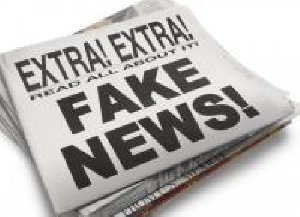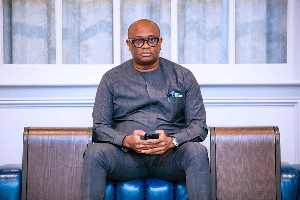The medium or process of our time “technology” is reshaping and restructuring patterns of social interdependence and every aspect of our personal life. It is forcing us to reconsider and reevaluate practically every thought, every action and every institution taken for granted.
Technology has undoubtedly brought about a revolution in communication. Most people would agree that this has been a positive development. Recently, however, there has been concern over the creation and distribution of news.
Most Ghanaians still remember the day the entire country was thrown into fear and panic following rumors of an impending earthquake by a hoax text message in 2010 and the recent social media hoax claiming dozens had died in an apparent terrorist attack on the Accra Mall.
In fact there are countless instances where political figures, business moguls and sometimes respected religious leaders have been vilified and lambasted in the media, only for us to realize later that we acted based on a fake story/news published by a media firm.
Fake news is now a profitable business, generating large sums of advertising revenue for publishers who create and publish stories that go viral. The more clicks a story gets, the more money online publishers make through advertising revenue and for many publishers’ social media is an ideal platform to share content and drive web traffic. The internet and social media have made it very easy for anyone to publish content on a website, blog or social media profile and potentially reach large audiences. With so many people now getting news from social media sites, many content creators/publishers have used this to their advantage.
The Ghanaian economy is gradually catching up with the digital revolution. Individuals and organizations are beginning to understand how the digital space works and the opportunities it has to offer, this makes the issue of fake news a national concern because it will be on the ascendency here just like it’s happening now in the western world. If we don’t find solutions to it as quickly as possible we will have to live the rest of our lives fighting this global monster.
Governments all over the world are tactically approaching the issue of fake news, organizations like Google and Facebook have announced new measures to tackle fake news with the introduction of reporting and flagging tools. Media firms like the BBC and Channel 4 have also established fact checking sites.
While these are welcome developments, I strongly believe Digital Media Literacy and developing skills to critically evaluate information are essential skills for anyone navigating the internet if we want to curb or mitigate the effect of this menace.
Digital Media Literacy provides a framework to access, analyze, evaluate and create messages in a variety of forms - from print to video to the Internet. It builds an understanding of the role of digital media in society as well as essential skills of inquiry and self-expression necessary for citizens of a democracy.
The study of Digital Media Literacy does not just give you an understanding of the digital media land scape, it also helps you develop logical reasoning and critical thinking skills which are essential in the digital space considering the huge amount of information available on the web and rise in fake news.
So how do you spot a fake news the next time you find yourself online? Below are a few ways to spot one:
Take a closer look
Check the source of the story, do you recognise the website? Is it a credible/reliable source? If you are unfamiliar with the site, look in the about section or find out more information about the author.
Look beyond the headline
Check the entire article, many fake news stories use sensationalist or shocking headlines to grab attention. Often the headlines of fake new stories are in all caps and use exclamation points.
Check other sources
Are other reputable news/media outlets reporting on the story? Are there any sources in the story? If so, check they are reliable or if they even exist!
Check the facts
Fake news stories often contain incorrect dates or altered timelines. It is also a good idea to check when the article was published, is it current or an old news story?
Check your biases
Are your own views or beliefs affecting your judgement of a news feature or report?
Is it a joke?
Satirical sites are popular online and sometimes it is not always clear whether a story is just a joke or parody… Check the website, is it known for satire or creating funny stories?
In case you want to ascertain the veracity of an online news, here are a few fact checking websites for reference:
Snopes: snopes.com/
PolitiFact: politifact.com
Fact Check: factcheck.org/
BBC Reality Check: bbc.com/news/reality-check
Fake news is thriving in this new media environment – presenting a threat to our democratic societies, underestimating it will be at our own peril.
Opinions of Thursday, 26 April 2018
Columnist: Sam Laryea















